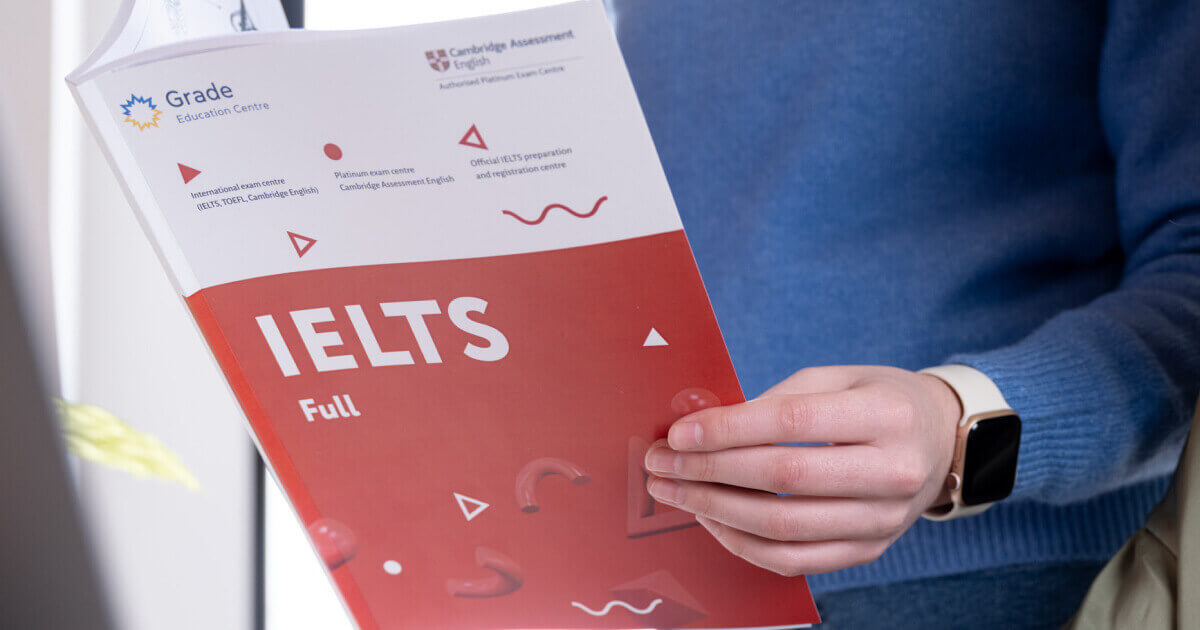
"To Play or Not To Play" or 16 Ways to Make Your Classroom the Most Amusing Place Ever
- Activities
- Tips & Strategies
- Methodology

30.01.2025
One of the current ELT trends is to become a universal teacher, meaning that one can teach diverse age groups and in various contexts, not only General English.
In other words, teachers strive for professional development and are willing to broaden their repertoire.
One of such possible directions is teaching exam preparation courses.
Students tend to go abroad to study more and more often and they need to pass language proficiency exams with flying colours.
IELTS is one of the most demanded exams, so educators look at the ways of how to become an IELTS teacher.
In this article, we will discuss what you need to know and do in order to become an IELTS instructor.

Teach IELTS reading with confidence
Join our courseIt goes without saying that if one is willing to teach English, they should have a good command of it.
In our case, a potential IELTS instructor should possess well developed skills of reading, writing, speaking and listening and a good control of the language systems — lexis, grammar, pronunciation.
There is a common question: what CEFR level is enough for teaching an IELTS preparation course?
Ideally, it should be advanced level — C1; in terms of IELTS bands, at least 7 or preferably 8.
The reason is that the teacher is a model for the students and should provide correct models of oral and written language.
Apart from that, the teacher should have enough knowledge of the language to be able to correct the students and additionally explain the correct answers.
Common mistakes students make in the IELTS Listening section
Another crucial aspect you should consider is the knowledge of the exam format.
By the exam format we mean the number of parts, timing of each part, task types, etc.
For example, in the paper-based IELTS exam, in the listening section, candidates are given 10 extra minutes to copy the answers to the answer sheet, while in the reading section, there is no extra time for that.
Regarding this, there is a common question: should teachers take IELTS themselves or not?
There are different views on that.
On the one hand, a strong command of the language, knowledge of the exam format and exam strategies may be sufficient to prepare a student effectively.
However, once the teacher has taken the exam themselves, they can share with the students some useful tips regarding the exam administration.
Moreover, the fact that the teacher has taken the exam themselves and has a high result contributes to building trust and a good rapport.
Therefore, we recommend you to take the IELTS yourself.
Apart from the language command, it is also important to have an IELTS teaching qualification, e.g. a university degree or CELTA/ DELTA.
Such qualifications lay the foundation of teaching methodology and classroom management.
So, you have a sufficient command of English and/ or have taken IELTS, and you are familiar with the exam format.
What is the next step?
If you want to become an IELTS teacher, you should learn about how to organise an exam preparation course.
First of all, it is essential to have a clear understanding of the key characteristics of exam preparation classes.
The major difference between a General English and an exam preparation class is development of exam strategies.
For example, if we speak about reading skills, it is important to develop such techniques as skimming — reading for the general information of the text, scanning - reading for specific information, and reading for detailed information.
It is important to not just practise the exam tasks but clarify and develop the strategies of how to perform the task quickly and effectively.
For instance, while preparing for a listening task, we normally encourage students to underline the key words, brainstorm some synonyms for them.
Besides, we elicit what information can be missing in the gaps.
It will enable the students to locate the part of the audio text with the necessary information and catch the answer.
Another essential element of an exam preparation course is regular timed practice and mock tests.
These are specially organised activities when students perform exam tasks under the exam conditions.
It is really useful because it helps students to test the strategies they developed, learn how to allocate the time and overall, it helps them to reduce stress and anxiety.
If it is a one-to-one preparation course, then you should do the needs analysis and find out which areas the student needs to improve in the first place.
In other words, you should address your student's needs.
It is also of great advantage to take an IELTS training course for teachers.
Such courses can help you gain insights into teaching exam strategies, assessment criteria, exam preparation techniques.
All in all, to become an IELTS teacher, you need to continuously improve your teaching techniques, stay updated on exam changes, and support your students with effective preparation strategies.
We hope that if you follow these steps, you can become an efficient, experienced and knowledgeable IELTS instructor who will help your students pass IELTS successfully, achieving the maximum score.
Olena Bochkarova
Author
Academic Director & Experienced Teacher | General & Business English, IELTS Prep | CELTA & CELT-S Trainer | International Speaking Examiner | Course Consultant
Comments
Leave your comment